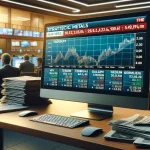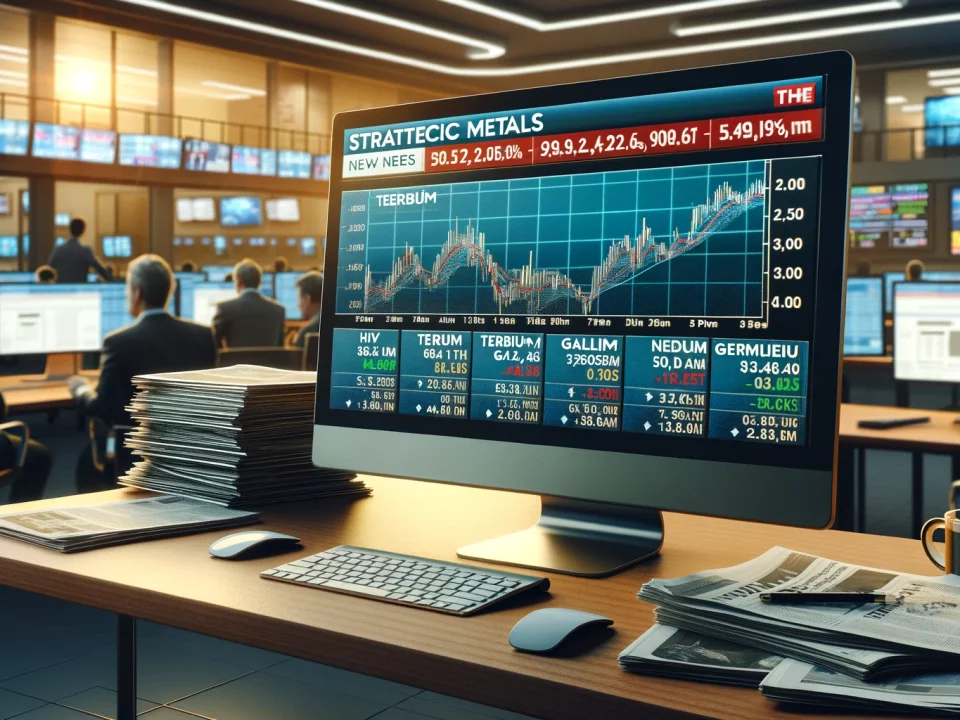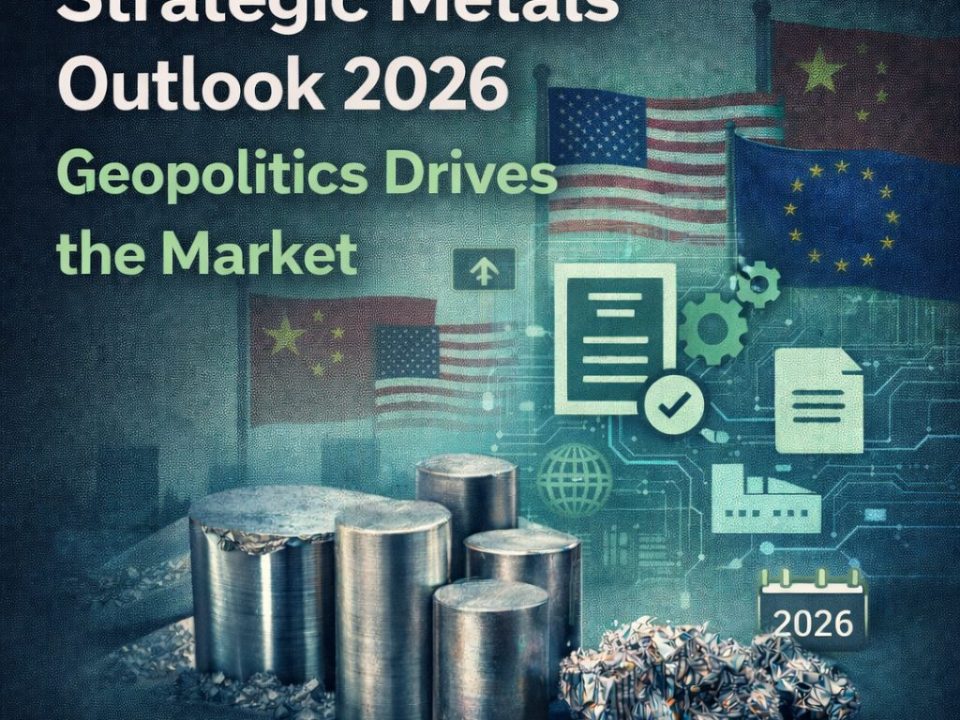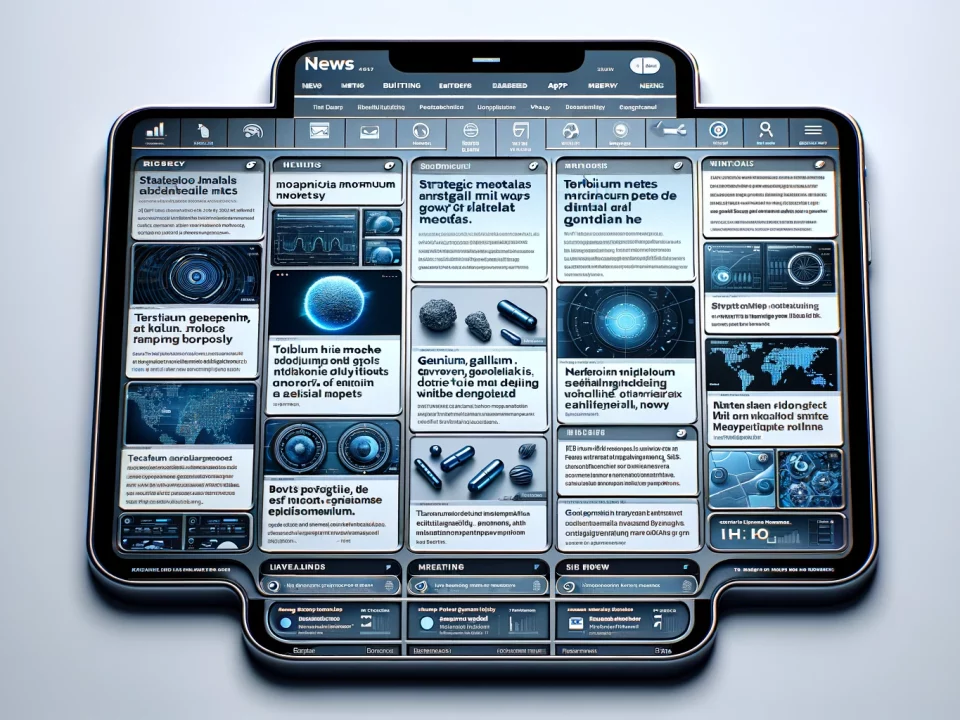
Weekly News Review July 29 – August 4 2024
August 4, 2024
Unveiling Paris’ Green Transformation Towards a Cooler Future
August 12, 2024Welcome to our weekly news review.
USA: MP Materials (USA) AND LYNAS CORP. (AUSTRALIA) – IS THERE A MERGER ON THE CARDS AFTER ALL?
The deal is still attractive, says Lynas CEO Lacaze.
At the beginning of this year, there were rumors of a possible merger between the two most crucial rare earth miners outside China, MP Materials from the United States and the Australian Group Lynas.
However, the talks between the two companies, subsequently confirmed, were put on hold as no agreement could be reached at a business level, as Lynas CEO Amanda Lacaze explained at a press conference at the Diggers & Dealers Mining Forum in Kalgoorlie, Australia. Nevertheless, Lacaze remains optimistic about a possible cooperation between the two companies, writes The West Australian.
Meanwhile, her company is building the country’s first rare earth refinery in Kalgoorlie, Western Australia. The rare earth carbonate produced there will then be transported to Malaysia for further processing or to a corresponding plant in the US as soon as it is operational.
It will be built in Seadrift, Texas. In Fort Worth, Texas, MP Materials is building a factory six hundred kilometers to the north. Production of rare earth magnets is expected to start here this year. The two companies have, therefore, already moved closer together in terms of location.
CHINA: RARE EARTH EXPORTS DECLINE YEAR ON YEAR –
According to data from the Chinese customs authority, 4,937 tons of rare earths were exported from the People’s Republic in July, a nine percent decrease compared to last year.
There was an increase of just under 2.2 percent compared to June 2024. In the current year, 34,032 tons of this raw material group have been exported.
The country’s foreign trade currently needs to be revised. While goods exports failed to meet expectations in July, imports rose to their highest level in three months, as reported by Reuters.
At the same time, economic growth is below the targeted figure of five percent, putting renewed pressure on the government to take action.
This applies, among other things, to boosting domestic consumption.
SOUTH KOREA: SK HYNIX AWARDED $950 MILLION IN LOANS AND GRANTS FOR FACILITY IN THE USA –
All five of the world’s top chip producers have now secured subsidies from the US Government.
South Korean chipmaker SK Hynix signed a non-binding agreement with the US Department of Commerce over $450 million in grants and $500 million in loans to construct a chip packaging and AI R&D facility in Indiana. $950 million is awarded under the Chips and Science Act, which President Joe Biden signed into law in 2022.
Under the act, the US aims to bolster the domestic semiconductor supply chain and restore production with $39 billion in grants, $75 billion in loans and guarantees, and 25% tax credits. SK Hynix will use the investment to build a production base for semiconductor packaging in West Lafayette, Indiana.
In April, the company announced it would invest $3.87 billion into the facility and signed a corresponding agreement.
Packaging in the chip industry means encasing chips into materials that protect them against external threats, such as contamination, light, or heat, while connecting the semiconductor to the surrounding infrastructure, such as circuit boards.
With the now-signed agreement, the US Government has announced that it will grant subsidies to all five of the world’s largest chip companies: SK Hynix, Micron, Intel, Samsung, and Taiwan Semiconductor Manufacturing Co.
Under its subsidiary SK Keyfoundry, SK Hynix is actively developing gallium nitride (GaN) semiconductors. According to the company, GaN semiconductors offer lower loss, higher efficiency, and miniaturization compared to commonly used silicon-based semiconductors.
QATAR: SOVEREIGN WEALTH FUND INVESTS IN CRITICAL STRATEGIC METALS –
The Qatar Investment Authority (QIA), the emirate’s sovereign wealth fund, will invest $180 million in TechMet. This investment company specializes in developing value chains for critical raw materials, from extraction to processing and recycling. One of TechMet’s largest shareholders is the US International Development Finance Corporation, the development bank of the United States.
TechMet plans to use the additional funds to expand its portfolio with strategic projects involving lithium, cobalt, and rare earths.
Among other things, TechMet has invested in the Norwegian company REEtec, which is developing rare earth separation technologies. REEtec’s largest shareholder is the Swedish state-owned company LKAB, which made headlines last year with the discovery of a large rare earth deposit.
This, together with REEtec, raises hopes for the emergence of a European supply chain for rare earths. According to the press release published Wednesday, Brian Menell, founder, chairman, and CEO of TechMet, is encouraged by Qatar’s entry and the US commitment and wants to create “significant across critical mineral supply chains.”
According to the Financial Times, Qatar wants to establish itself in the market for strategically critical raw materials and use its neutrality in the disputes between the United States and China to its advantage. The Gulf state maintains close diplomatic relations with both countries.
CANADA: NEO PERFORMANCE METALS ADVANCE IT’S TRANSFORMATION –
The Canadian company IS BUILDING a magnet factory in Estonia, among other things.
Neo Performance Materials reports a 37% drop in sales to $107 million for the second quarter compared to last year. However, the manufacturer of rare earth magnets and industrial materials says that the balance sheet for the first half of 2024 looks better than in the same period of the previous year.
Adjusted EBITDA increased slightly to $24.2 million, and the company is forecasting $45 to 50 million for the year as a whole. According to CEO Rahim Suleman, Neo is currently undergoing a transformation process that is showing initial results. In August, a stake in a plant for the production of gallium trichloride was sold to concentrate on the most important markets and products in the future.
In April, a separation plant for light rare earths in Zibo, China, was also decommissioned. In Europe, on the other hand, Neo is expanding its presence with a factory for sintered magnets, which are used in electric car drive motors, built in Estonia.
Also, in August, a major European car manufacturer placed a large order with Neo for this factory, which accounts for around 35% of the production volume.
In technology metals, demand for hafnium contributed positively to the Group’s performance. The metal is required to construct aircraft engines, among other things. Aviation is recovering from the coronavirus pandemic, and many airlines are using this to modernize their fleets.
UNITED KINGDOM: SYNTEGIQ (UK) SIGNED COLLABORATION AGREEMENT WITH CYCLIC MATERIALS CANADA –
Collaboration between the Canadian company and Synetiq, a UK-based recycler.
Canadian magnet recycling startup Cyclic Materials signed a collaboration agreement to recycle rare earths from electric and hybrid vehicle motors with UK-based Synetiq, a company specializing in vehicle salvaging. Under the agreement, Synetiq’s salvaging operations in the United Kingdom will supply motors to Cyclic’s demonstration plant in Ontario, Canada.
These motors include electric and hybrid vehicle drive motors and auxiliary motors in all vehicles, such as windshield wipers or sound systems. Patrick Nee, senior vice president of strategic partnerships and co-founder of Cyclic Materials, highlighted that the deal with Synetiq is a “milestone,” adding that Cyclic aims to expand its network further from North America to Europe.
The supply agreement with Synetiq marks Cyclic’s first overseas feedstock agreement. The company recently signed a deal with Belgian chemical company Solvay to supply its facility in France with mixed rare earth oxides for further refining. In the future, rare earths from motors reclaimed in the UK could thus be recycled in Canada and refined in France to eventually supply European carmakers.






